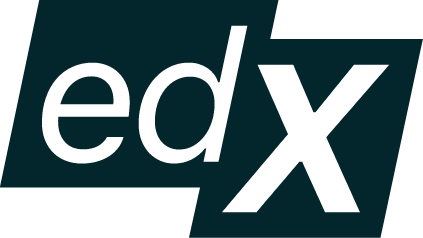
As a candidate in the fintech field, you’re at the forefront of shaping the future of finance. Competitive fintech candidates exhibit a strong blend of technical expertise and a deep understanding of financial markets and regulations. An interview is your opportunity to showcase how you can contribute to the future of fintech.
As you prepare for interviews, use this resource to formulate responses and develop an interview strategy.
Interview questions by category
We have categorized the interview questions into three sections. Feel free to read straight through or jump to the sections that interest you most.
Tell me about yourself.
Give a snapshot of your work history.
- Past — Previous experience and education
- Present — Your current job and how it’s preparing you for this role
- Future — Why you want the job you’re interviewing for
Your snapshot should show the interviewer how your experiences equip you with the skills to succeed at their company and why you are interested in the specific role.
What are your greatest strengths and weaknesses as a fintech professional?
Consider the job description and the required skills in the posting, and align your answers with skills you’ve mastered. Discuss your areas of expertise and how they will benefit the organization, team, or position.
For weaknesses, discuss a skill that you are actively working to improve. Explain the steps that you have already taken to improve the skill, and the success that you have already achieved. Be sure not to cite necessary skills for this position as weaknesses.
Why do you want this job?
Demonstrate that you’ve researched the company, and express what you like about it and why your skills would be a good fit for the job. Explain how the role will contribute to your career progression and what you can contribute to the team. Let them know what about the job and company excites you. Be specific and express enthusiasm about potentially working for the company.
Where do you see yourself in five years?
This question is designed to probe your career goals and vision. Tell your interviewer about your career aspirations and ambitions. Express your desire to succeed and explain how this job will contribute to your progress. This is an opportunity to show that you are goal-oriented and that you have a plan to achieve those goals.
What are your salary expectations?
Prepare thoroughly for this question. Research salary ranges for this particular job, this industry, and your geographic area. Use websites like Payscale.com or Salary.com. The interviewer wants to know how you value yourself.
If possible, avoid speaking about salary until after you receive an offer. If you must speak about salary expectations, ask the interviewer how they value the role before stating your expectations. Use the salary given by the interviewer as leverage to negotiate a favorable salary. Aim high, but within the range you’ve researched, and be prepared to provide examples of why you’re worth the salary that you cite.
Helpful resources:
Salary negotiation is a hot topic these days. Check out our Salary negotiation guide and salary negotiation article, “Know your worth: Tips for salary negotiation,” to learn more about earning what you are worth.
Do you have any questions for me?
Interviewers often ask this question to gauge your interest and to see if you’ve researched the company. Prepare a few questions in advance, but keep in mind that your questions may be answered during the interview. To show you’re engaged with the interview process, prepare questions related to work, company culture, or day-to-day responsibilities of the job.
Expert advice
“When asking questions, identify the values that hold significance for you in the workplace. Then, formulate some questions based on these values. By doing so, you can gather insights as to how the company aligns with your personal aspirations and make informed decisions about your compatibility with the company.”
– Andrea B., career expert at edX

What is Agile and what is your experience with the methodology?
Many tech companies use a management system based on Agile methodologies. This question helps the interviewer understand how quickly you could be onboarded into the team’s workflow. Your response should explain what Agile is, and tell a story in which Agile led you to success.
What is “value” and how can you calculate it?
Questions like this test your knowledge of basic financial concepts. Define the term in your own words, and describe a few ways that it can be calculated.
How would you describe blockchain technology to a non-technical person?
Questions asking candidates to describe a technical topic to a non-technical person are designed to test communication skills. Your answer should show that you are able to effectively discuss technical topics with a wide range of stakeholders. Consider using the STAR Method (learn more about the STAR Method in our Behavioral interview prep guide) to discuss a time that you collaborated with non-technical stakeholders.
What is your experience with SQL?
This question can be tricky if you are a career starter or career switcher. You may feel a desire to downplay your skills; however, interviews are not the time to be humble. When answering this question, give an honest answer about your skills and your ability to learn new skills without overstating your qualifications.
Write an algorithm that does _______.
Questions that require you to write code often take place during whiteboard interviews or online technical assessments. We recommend that you take the following steps to answer these types of questions.
- Repeat the question, and ask clarifying questions.
- Write the pseudocode for your algorithm.
- Write the code.
How is artificial intelligence (AI) contributing to fintech advancements?
Explain how AI is used in fintech for tasks like fraud detection, credit scoring, customer service chatbots, and algorithmic trading. Emphasize how AI-driven insights help in making more informed financial decisions. When possible include a story about a time that you utilized AI technology.
Technical screenings:
You will find that some employers include technical screenings as part of the hiring process. Technical screenings are an opportunity for you to demonstrate your technical skills in the form of an assessment, live interview, or take-home project. Learn more about technical screenings in our Technical screening guide.
How do you stay abreast of industry trends?
This is an excellent opportunity to show that you are passionate about fintech and willing to put forth the extra effort to stay current on the latest news and trends in the industry. Cite three to four ways you track the industry and how each process or tool benefits you.
Why do you want to be a leader in our company?
Your response gives the interviewer a sense of how you’ve conceptualized this leadership role and if you’re ready for the responsibilities. They may also want to assess how well your professional values align with the company values. Discuss what you enjoy about being a leader and/or experiences that have prepared you for leadership.
Pro tip:
Practice mock interviews with peers or mentors. They can provide valuable feedback and help you refine your responses.
What are your thoughts on the current state of the market?
This question seeks to understand how you formulate opinions and make decisions. Good answers to this question include quantitative and qualitative data points, such as the S&P 500 or consumer sentiment. This is an opportunity to show the interviewer that you are passionate about fintech and stay up-to-date on the field.
Note: Try to keep your response positive and optimistic. Employers are looking for candidates that find problem-solving opportunities, even when the market is tumultuous.
Tell me about an innovative project that you worked on.
Fintech employers want candidates who are comfortable working in an innovative and ever-changing industry. Choose a project that highlights your ability to work with new technologies, processes, or markets. Then, use the STAR Method to concisely share the story.
How do you navigate the challenges that arise when collaborating with external stakeholders?
Fintech often involves partnerships and collaborations with traditional financial institutions. This question assesses your ability to manage partnerships and bridge the gap between fintech and other industries. Begin by highlighting the mutual benefits of such collaborations, like combining innovation with established customer bases. Discuss the challenges that can arise, such as differences in culture and working methods. Mention your approach to addressing these challenges, such as clear communication, setting expectations, and finding common goals. Provide an example of a successful partnership that you managed, outlining how you facilitate productive interactions, aligned objectives, and achieved measurable outcomes.



